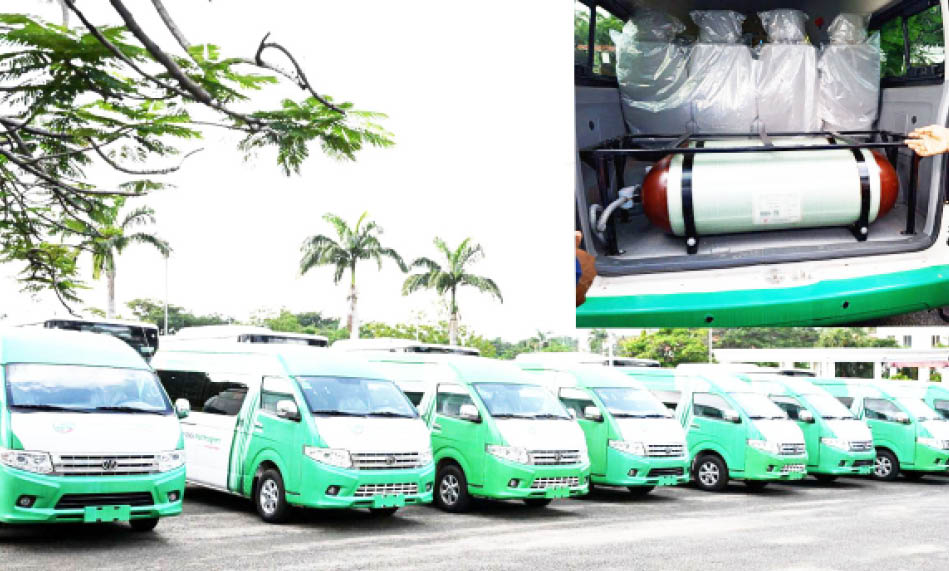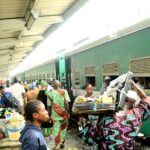Several months ago, the federal government made a promise to Nigerians that Compressed Natural Gas (CNG) buses would be deployed to cushion the impact of the removal of fuel subsidies.
This was a pledge aimed at alleviating the hardship many Nigerians have been facing, particularly with transportation costs skyrocketing since the subsidy removal. However, despite the critical need for intervention, these CNG buses have yet to materialise, leaving millions to cope with the excruciating effects of increasing fuel prices.
The subsidy removal itself was a significant policy shift that has brought more pains and hardship upon Nigerians. In a country where the majority depend on public transportation, affordable fuel is not a luxury; it is a necessity.
The government was well aware that the sudden surge in transportation costs would stretch household budgets to their limits, which is why the introduction of CNG buses was so important. These buses were supposed to be a game-changer, offering a more affordable alternative to petrol-powered vehicles, helping reduce transport costs, and cushioning the blow to millions of Nigerians. Unfortunately, months have passed, and the buses are still nowhere to be found.
Instead of bringing relief, the fuel price has been increased again to over N1000 per litre. For many Nigerians, this is the final straw. When the fuel subsidy was first removed, citizens were told to endure the price hike because better days were coming—days when CNG buses and other palliative measures would ease their pain. However, rather than experience relief, they now find themselves facing even higher fuel costs, with no sign of the promised CNG buses on the roads.
This broken promise has serious consequences. The most obvious impact is on public transport users. Nigerians who rely on buses, tricycles, and taxis for daily commuting have seen transport fares soar since the subsidy removal. As the cost of fuel rises, transport operators pass the burden onto passengers, making it harder for low-income earners to get to work, school, or markets. This has ripple effects throughout the economy, as higher transport costs contribute to inflation. Prices for food, goods, and services have risen sharply, stretching the purchasing power of already struggling families. Small businesses, which depend on affordable transport to move goods and staff, are also suffering.
Furthermore, the delay in rolling out CNG buses is undermining public trust in the government. The President Bola AhmedTinubu administration’s credibility is at stake, and each passing day without visible progress erodes that trust. Citizens who are already frustrated by economic hardship are losing patience. They need solutions, not just promises. The introduction of CNG buses was meant to be a practical step to mitigate the effects of the subsidy removal. By failing to deliver on this promise, the government is not only worsening the current crisis but also signaling a lack of urgency in addressing the plight of its people.
The failure to deploy CNG buses also highlights deeper systemic issues. Where is the accountability? Why has the process been delayed? What challenges is the government facing in rolling out this much-needed intervention? Nigerians deserve answers. It is not enough for government officials to make promises without following through. The government must be transparent about the reasons for the delay and provide a clear timeline for when these buses will be available. More importantly, there must be a sense of urgency in addressing this crisis, which is far from just an inconvenience for many—it is a matter of survival.
At this point, it is essential for the government to recognise that Nigerians are struggling under the weight of high transport costs, inflation, and stagnant wages. While long-term solutions to the country’s economic challenges are necessary, short-term palliatives like CNG buses are critical in alleviating immediate suffering. The failure to act quickly is not just a breach of trust; it is a failure in governance.
The Tinubu administration must take swift and decisive action to fulfill its promise of providing CNG buses. Nigerians cannot continue to bear the brunt of policy changes without relief. If the government is serious about helping its citizens, then it must deliver on its commitments without further delay. The people of Nigeria are waiting, and they deserve answers, action, and the relief that was promised to them. The time for excuses is over.
Ahmadu Bala wrote from Bida, Niger State

 Join Daily Trust WhatsApp Community For Quick Access To News and Happenings Around You.
Join Daily Trust WhatsApp Community For Quick Access To News and Happenings Around You.


